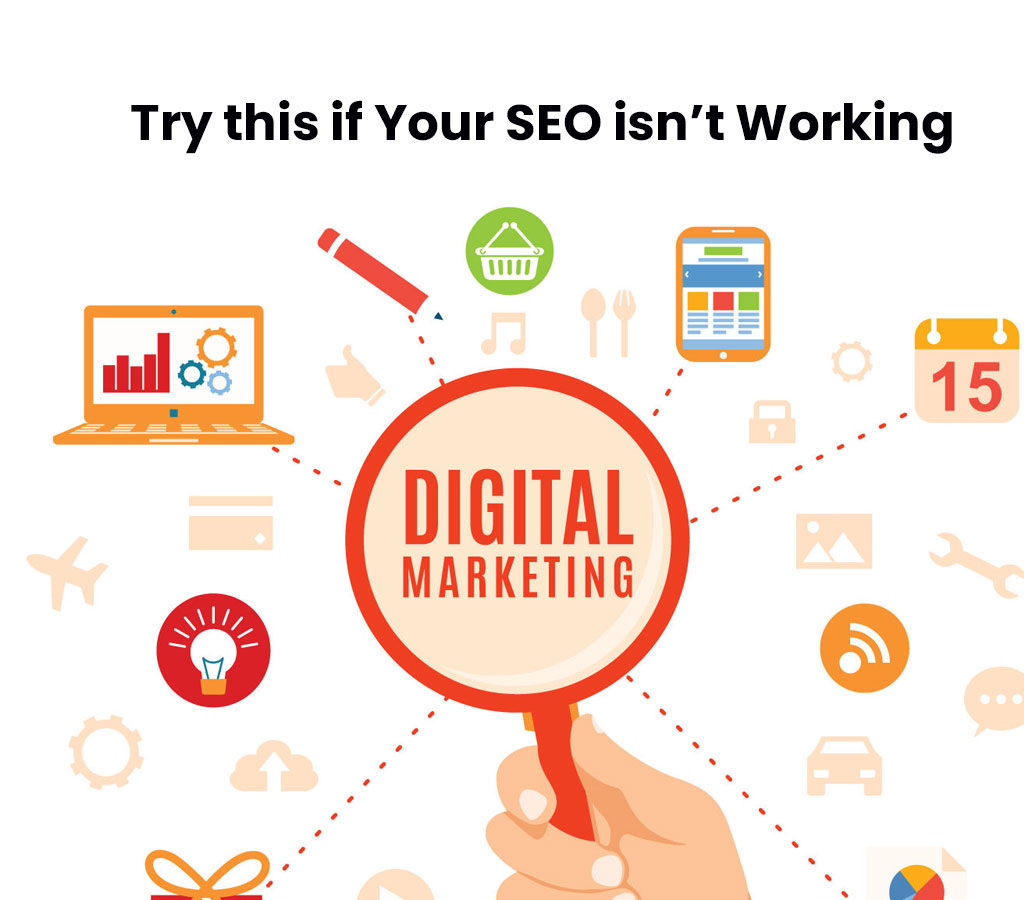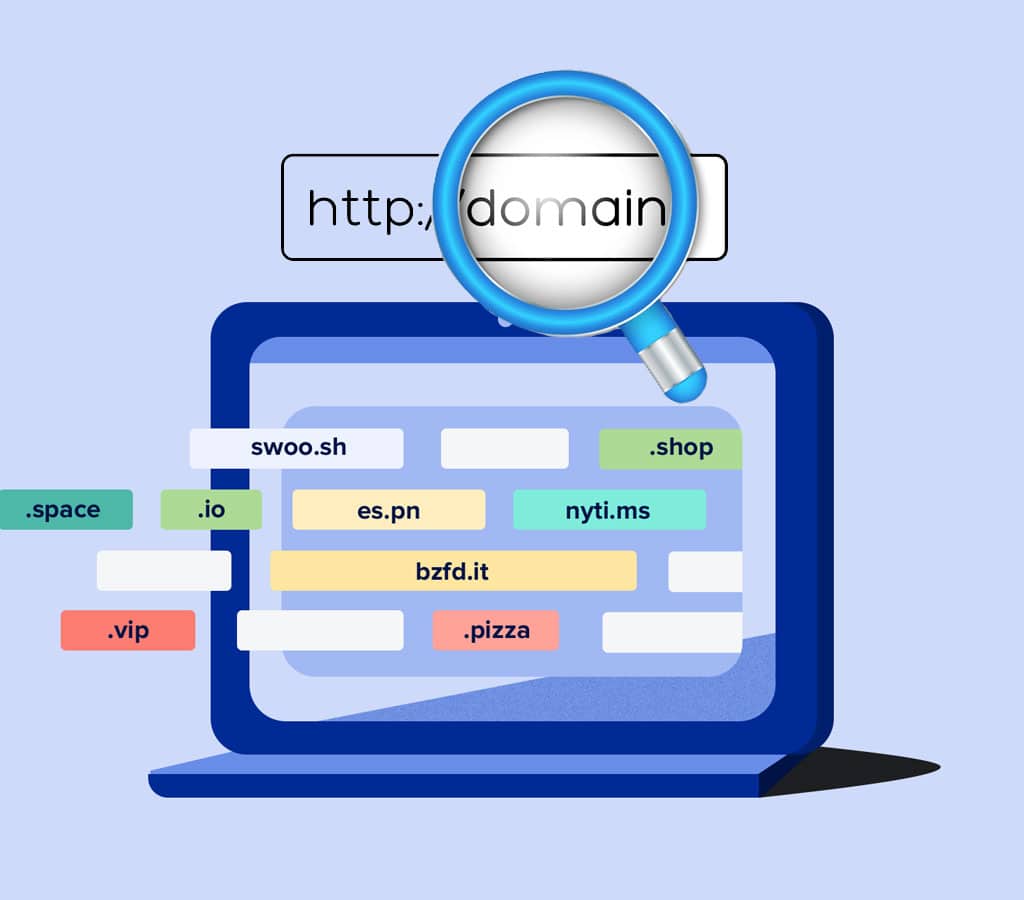Try this if your SEO isn’t working

Try this if your SEO isn't working
A person with even a little knowledge of digital marketing must have heard of the terminology ‘’Search Engine Optimization” or simply SEO. It is not so because SEO is some sort of complex branch of quantum physics that would need a sensei to master, but because SEO is the basic step for digital marketers. And with correct techniques and application methods, you could be on top of Google Search results, which actually means a lot.
But for now, let’s focus on ‘you’. You knew a great deal about SEO, worked on different SEO techniques, practised on different platforms, but this time, your SEO techniques are failing to keep your business up in the Google ranks. Tried something new, didn’t work. Tried something out of the box, didn’t work at all. So what could it be? What are you doing wrong here? Let’s find out, and also look at some solutions that are definitely going to ease up the situation for you:
Are you doing the right kind of SEO?
In all these ‘digital’ years, times have changed. The digital techniques that worked yesterday, may not work tomorrow. Also, due to personalized and preference-based services, Google algorithms have grown ‘conscience’ towards advertisements that make sense on the walls of specific-users. And well, this is just one of the ways your SEO needs to be streamlined. Even before starting out with the optimization, you must determine your SEO strategy whether it is going to be focusing on organic or inorganic reach from across the world or domestic market, and also the kind of visitors you want to attract i.e technology leaders, local businesses, huge enterprises or just readers.
You can also read: Role of Digital Marketing for Any Businesses Growth
And how about your on-page strategy?
If you have being following the sub-par methods of on-page optimization, it is high time you changed that. On-page optimization strategy plays a key role in building credibility for your website, and credibility is what Google looks for, when skimming through billions of websites to get user the most relevant result in google search and social media. Starting with the title, your aim should be to make this element as unique as possible. But in the quest of getting the most unique title for the page, do not lose track of way people search on Google. In simpler words, you should not be using a title that is too common and neither something too complex. For example – if your content is about uploading YouTube video, ‘Here is how to upload YouTube videos’ could be the perfect title as it has an optimum length with 30-40 characters and include the focus keyword ‘upload YouTube videos’. Right below it, you have the URL section, which shall also contain the keyword. Keeping the keyword density between 2-5% is advised, but in case of long-tail keywords, we know keeping up with the density, especially in long texts makes the content look too made up. Another key factor that could help you with better on-page results is a meta-description, which should precisely be the summary of what the page says about, but doesn’t spill any information at the same time. And while external linking is important, try to legitimately link long-tail keywords to other pages on your website for two reasons:
- To allow Google find your website with interlinked pages for better credibility.
- To allow visitors find most of the content relevant to them in a single session, by navigating through links.
You can also read:
10 Digital Marketing Tactics Every Business Should Use
How to Become a Digital Marketing Specialist – Learning Paths Explored
How good is your content quality?
Uh-oh! Consider yourself out of the game if the quality of content is not at par with the acceptable standards. Unstructured, grammatically wrong, and plagiarized content is ranked down by Google in no time. Due to poor quality of content, keywords are mostly stuffed without actually making sense, which can easily be noted by Google and leads to lower rankings. And from what the changes in Google algorithms indicate, Google clearly prefers URLs that are more about content and less about keywords or links. Also, the content you create, shall not only be unique, but your subject shall also be in accordance with trending user queries. For example – if your product is Artificial Intelligence (AI) based, and uses predictive analytics to solve a problem, your content’s tone shall be focused more on the way world wants to know predictive analytics, which can be deduced from the google search suggestions.
Latest Blog Posts
Why Should you Use a Custom Domain Name for your Blog?
Why Should you use a Custom Domain Name for your Blog? Benefits of Custom Domain Name for a Blog For some, blogging is a way to live life and for…
What is Web Hosting, Types and Features of Web Hosting?
What is Web Hosting, Types and Features of Web Hosting? Strictly Beginners Guide You might be reading this information for one these reasons: you’re a blogger looking to get a…
Why Mobile Apps are best for Learning?
Why Mobile Apps are best for Learning? Best Reasons Why You Should Use Mobile Apps for Learning Remember the old school methods of learning? Too many notebooks, too many stationeries,…






Leave a Reply
You must be logged in to post a comment.